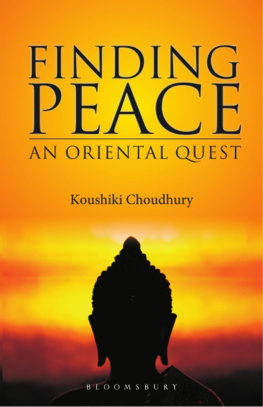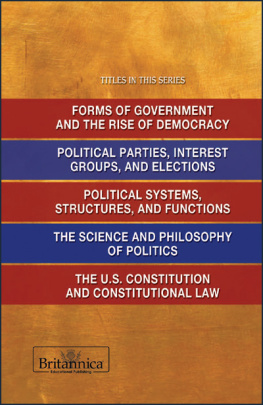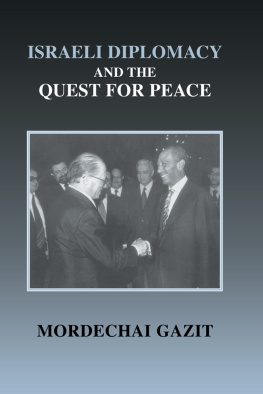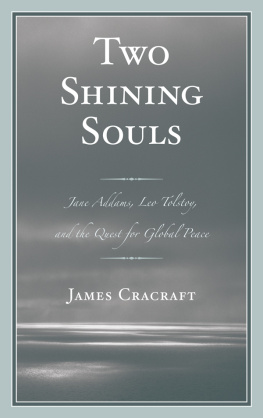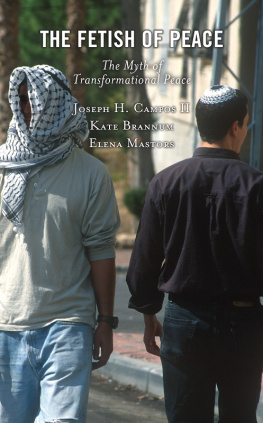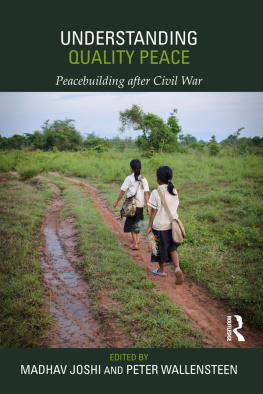The Quest for Peace
Quelling the Rash of Violence
Harry Gael Michaels
Austin Macauley Publishers
2020-08-31
The Quest for Peace
About the Author
Harry Gael Michaels is a retired school psychologist who first entered his career as a juvenile probation officer in the 1960s. His writing of this essay is the result of witnessing an escalation of violence over the years in the nation.
He is also the author of How Goes It with America, Wings Over Normandy, The State of the Republic, and Reflections on Institutional Catholic-ism.
Dedication
This book is dedicated to all the young innocent children and their teachers who have been senselessly slaughtered in their own classrooms by the violent and hateful dispositions of those who are reflecting the
malcontent in our society as a whole.
Copyright Information
Harry Gael Michaels (2020)
All rights reserved. No part of this publication may be reproduced, distributed, or transmitted in any form or by any means, including photocopying, recording, or other electronic or mechanical methods, without the prior written permission of the publisher, except in the case of brief quotations embodied in critical reviews and certain other non-commercial uses permitted by copyright law. For permission requests, write to the publisher.
Any person who commits any unauthorized act in relation to this publication may be liable to criminal prosecution and civil claims for damages.
Austin Macauley is committed to publishing works of quality and integrity. In this spirit, we are proud to offer this book to our readers; however, the story, the experiences, and the words are the authors alone.
Ordering Information:
Quantity sales: special discounts are available on quantity purchases by corporations, associations, and others. For details, contact the publisher at the address below.
Publishers Cataloging-in-Publication data
Michaels, Harry Gael
The Quest for Peace
ISBN 9781645757375 (Paperback)
ISBN 9781645757382 (Hardback)
ISBN 9781645757399 (ePub e-book)
Library of Congress Control Number: 2020906608
www.austinmacauley.com/us
First Published (2020)
Austin Macauley Publishers LLC
40 Wall Street, 28th Floor
New York, NY 10005
USA
mail-usa@austinmacauley.com
+1 (646) 5125767
Foreword
If there is light in the soul, there will be beauty in the person, and there will be harmony in the house.
If there is harmony in the house, there will be order in the nation.
If there is order in the nation, there will be peace in the world.
Chinese Proverb
Life is absurd and beautiful. When you consider that life, as we know it, has a beginning, a flourishing, a decline and an end. We wonder why we constantly endeavor to race forward in the never-ending struggle for ascendancy and advancement? For what? As William Shakespeare put it in his Act 2, Scene 7 of his play, As You Like It:
JAQUES
All the worlds a stage,
And all the men and women merely players:
They have their exits and their entrances;
And one man in his time plays many parts,
His acts being seven ages. At first the infant,
Mewling and puking in the nurses arms.
And then the whining school-boy, with his satchel
And shining morning face, creeping like snail
Unwillingly to school. And then the lover,
Sighing like furnace, with a woeful ballad
Made to his mistresss eyebrow. Then a soldier,
Full of strange oaths and bearded like the pard,
Jealous in honor, sudden and quick in quarrel,
Seeking the bubble reputation
Even in the cannons mouth. And then the justice,
In fair round belly with good capon lined,
With eyes severe and beard of formal cut,
Full of wise saws and modern instances;
And so, he plays his part. The sixth age shifts
Into the lean and slippers pantaloon,
With spectacles on nose and pouch on side,
His youthful hose, well saved, a world too wide
For his shrunk shank; and his big manly voice,
Turning again toward childish treble, pipes
And whistles in his sound. Last scene of all,
That ends this strange eventful history,
Is second childishness and mere oblivion,
Sans teeth, sans eyes, sans taste, sans everything.
So, what drives us toward endless toil and production? As our shrinking energy steals, inch by inch, our vitality and stamina. And, hoping that something after death from whose bourn no traveler returns, will satisfy all our longings, return all our losses and gratify all our desires.
And, then there is; The Man with the Hoe, the poem by Ewin Markham that begins with:
Bowed by the weight of centuries he leans,
Upon his hoe and gazes at the ground,
The emptiness of ages in his face,
And on his back the burden of the world.
Who made him dead to rapture and despair,
A thing that grieves not and that never hopes,
Stolid and stunned, a brother to the ox?
Who loosened and let down this brutal jaw?
Whose was the hand that slanted back this brow?
Whose breath blew out the light within this brain?
Is this the Thing the Lord God made and gave?
To have dominion over sea and land;
To trace the stars and search the heavens for power;
To feel the passion of Eternity.
And yet, stop and consider all that homo sapiens has accomplished, created and produced throughout its short time on this earth. That is the beauty of life, from ancient tools made of stone, to the discovery of fire, the wheel, metal weapons, agriculture, animal husbandry, the steam engine and the industrial revolution, the architecture and engineering of great cathedrals and pyramids; astrological discoveries, science, medicine and aviation, the Apollo II moon-shot, digital technology, the arresting of many fatal diseases that formerly wiped out huge populations, cell phones, computers and now plans to go to Mars. However, there is also the Achilles heel of our nature, and that is the phenomenon of endless unrest and disquietude in the quest for peace because it seems so elusive whether it be within ourselves or within our societies. This essay is about that quest.


